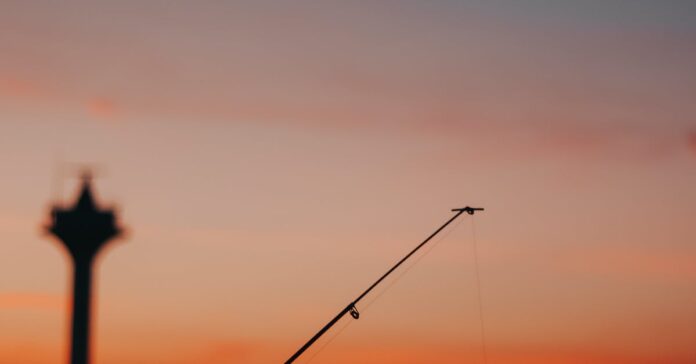No matter what type of fishing you’d like to do, you won’t be any good at it until you know what you’re doing. Fortunately and despite popular belief, fishing is not that difficult a sport to tackle. Read on for the best tips on fishing, and you’ll be on your way to becoming a great fisherman.
If you are just starting out with fishing, don’t overload your tackle box. You can find millions of different types of bait and pieces of equipment in the fishing supply store. Though they all serve a purpose, you don’t necessarily need every piece. Start with a handful of different types of bait and a few different sized hooks and weights. You can always add more later once you have fine tuned your list of necessary products.
If you want to catch more fish, then take care to ensure that your hook remains sharp. Otherwise, the fish will disregard your bait and you are sure to come up empty. Sharpen your hooks prior to each fishing trip so as to not waste time while your on the water.
Just as in other sports, it is vital to have the proper gear. There are many different types of fishing and each one requires different equipment. If you go fly fishing with a normal rod, you will quickly find yourself put into a position where it is very difficult to fish correctly.
Pay attention to your knots. The knots in the fishing line are what hold your hooks to your line. It doesn’t matter how many fish you catch if the hooks come free from the line under pressure. Practice knots with thread or other material at home before you take to the waterways.
When fishing, sit in a location for at least 30 minutes before giving up. In many cases, you need to give the scent of your bait time to travel and you need to give the fish in the water time to locate your line. If you don’t wait at least 30 minutes for this to happen, you might miss out on some great catches.
Be cognizant of the weather when and where you’re fishing, along with the forecast of that whole day. Setting off into an area that has lightning and thunder could quickly kill your day. Examine the weather forecast so you can discover the perfect place to fish without interruptions.
Pay attention to the weather, especially the wind. If it’s a windy day, chances are the fish have followed the current and will be grouped together in one area. Your casting should be into the wind. However, if the wind is too strong, fish will probably stay at the bottom of the lake where you cannot reach them.
Anyone fishing should use quality fishing equipment. Fishing rods and reels come in all shapes and sizes and at all different price ranges. While you don’t need to break the bank when purchasing a rod and reel, you do want to make sure that it will get the job done.
In Spring, during the early morning hours fish do not bite. At this time the water is too cold and the sun does not heat it up because the sun is low, the rays simply bounce off of the water. Fish will be biting soon, though. After thaw, wait about a week until the water turns over and the temperature gets up to 39.2 degrees.
When you pull together all of your equipment for your next fishing trip, make sure to bring your camera along! If you make a particularly impressive catch, you will certainly want to document it. Even if you don’t land a whopper, you may want to make a record of a fun trip with friends.
With the proper casting technique, you can land your lure in the water with little noise. If your lure makes a loud noise when it hits the surface of the water, it will actually scare fish away, rather than attract them. Do not try to cast back with your whole arm, just move your wrist to get the quiet cast you want.
Don’t fight the current, use it to your advantage. If you notice a current in play, use it. Jerking your lure with the current will give it a more natural look. The more realistic your lure appears, the more success you will have in catching fish.
Switch colors before you change lures. When you aren’t catching anything, you may feel tempted to switch to a different lure. This is seldom the best solution. Rather than switching from a lure that has been effective in the past, try a different color of the same lure. This is more likely to fix the problem than a new lure entirely.
Now that you’ve read this article, you should be prepared to take that first fishing trip. Use the advice that you’ve gleaned from this article to make it a successful trip. With a bit of practice, you’ll soon be able to brag about the huge fish you caught, instead of lamenting about the one that got away.

